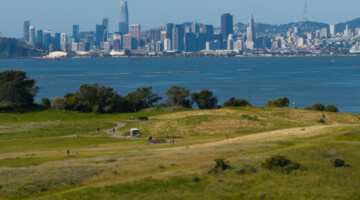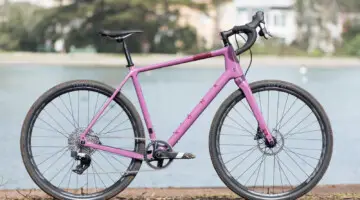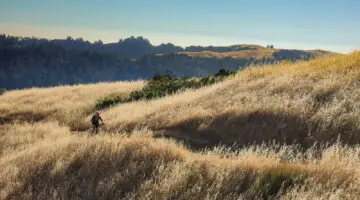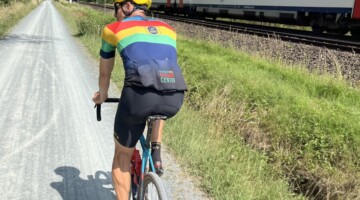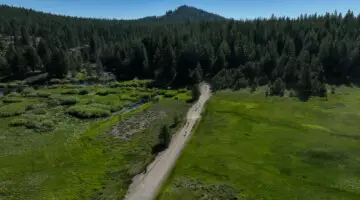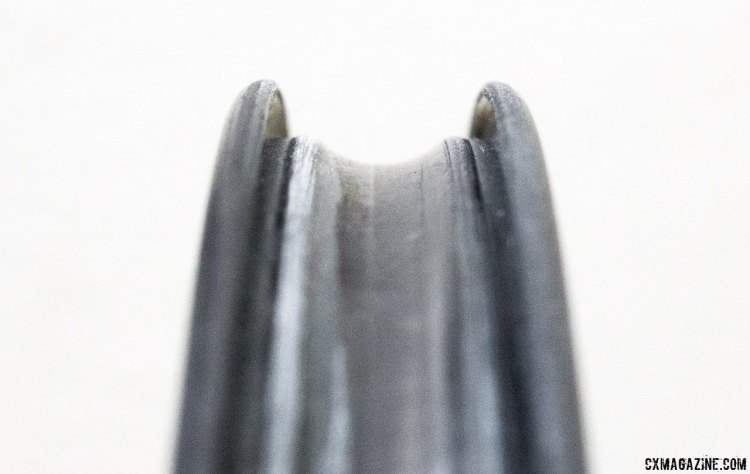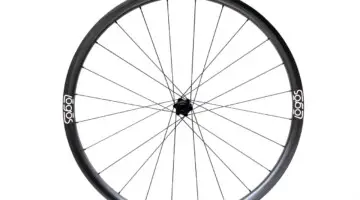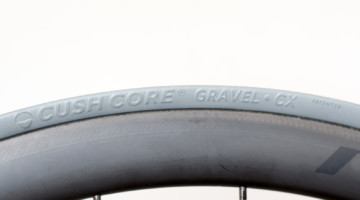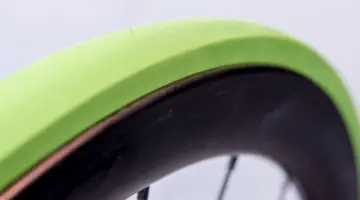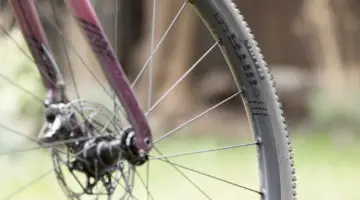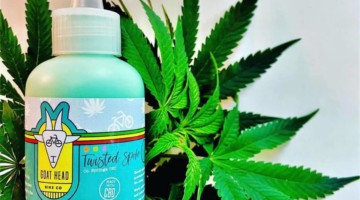EC90 SL: Versatility with Rim and Disc Brakes
Easton’s carbon EC90 SL comes in four main formats: Rim brake clincher and tubular, and disc brake clincher and tubular. The disc brake options feature Easton’s M1 mountain bike hubs instead of the Echo hubs, and the M1 hubs offer axle cap options for quick release and thru axles, as well as an XD driver for SRAM’s wide-range cassettes. Theoretically, you should have no problem throwing these wheels on a cross country 29er mountain bike, and they’ve got the axle options to make swapping bikes easy. Race one set of wheels in a time trial, mountain bike race, gravel race and then all cyclocross season? It’s possible.
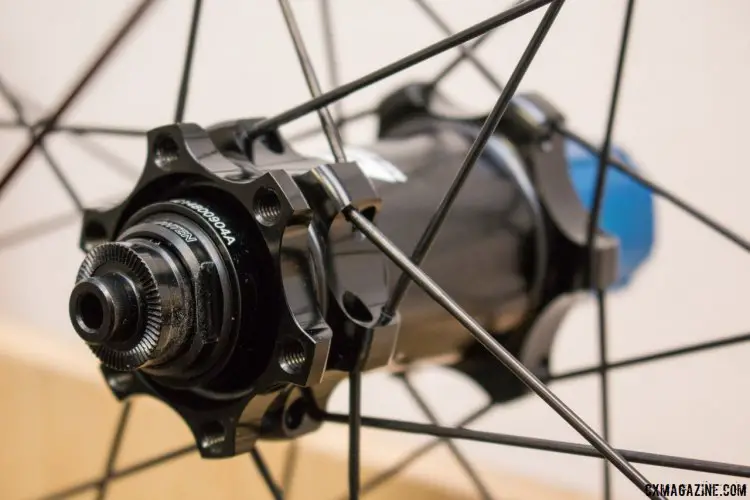
Easton’s M1 hubs are used on the disc versions of the EC90 SL carbon tubeless and tubular wheelset. © Cyclocross Magazine
The rim for the disc wheel isn’t an identical rim to the rim brake model, although the shape is identical. Easton changed up the resin, swapping a particularly heat-resistant resin used for rim brakes for one that is said to be stiffer and more durable.
Still on rim brakes on your cyclocross, gravel or adventure bike, but want to lighten the bike with carbon wheels? Easton’s braking surface and rim should be well-suited to miles of long dirt road descents. The company routinely tests its rims along with competitors’ products, and we witnessed the test. One machine mimicked rim braking on a carbon clincher while descending a steep, two-mile descent while applying 600 watts of power.
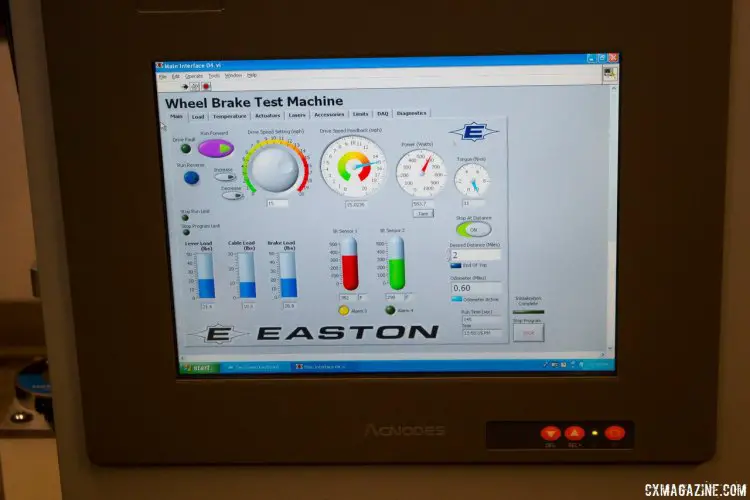
Easton braking and heat resistance test of carbon rims. The red and green sensors measure the rim’s temperature. The test runs for an equivalent of two miles, braking while applying 600 watts, or until failure. © Cyclocross Magazine
The rims approached 500 degrees F, and such a test generated enough heat to shatter an ENVE’s rim sidewall, while the Easton EC90 SL rim emerged toasty warm but barely blemished. Thankfully disc brake users won’t have to worry about such rim heat, and instead will only need to worry about hydraulic brake fade or failure on such a long descent.
High or Low Pressure? Easton’s EC90 SL Attempts Both
Easton’s carbon (and alloy) Road Tubeless rims tackle tubeless in an elegant fashion, with fully-sealed rims. That means there’s no rim tape to crack, bunch up, or slip, and no drillings to fill with sealant or water. Instead, Easton has threaded eyelets that the spoke nipples thread into. Break a spoke or need to replace a nipple? It’s still possible to change one out, with a standard spoke wrench (whether or not your local shop has a proprietary Easton threaded nipple is a separate question). Cleaning up the rim after a season’s worth of sealant? It’s easy without all those holes or tape. On our excellent first ride with road tires (more on that below), we kept taking air out of the tire, ending up with around 70 psi in 25c tires, and they still held great without any hint of a burp.
But what about low pressure? If you’ve followed our site, or read our comprehensive Tubeless Rules and Myths article in our print magazine, you’re already aware that that satisfying the needs of a low pressure and high pressure tubeless system with one rim is a tough nut to crack. NoTubes (with its Grail) and American Classic are two companies that have done it quite well, but building a rim to suit the road tubeless market and cyclocross market is challenging. While we’ve had excellent luck with Easton’s XD90 aluminum Road Tubeless wheel, albeit with only two specific tires in the older carbon bead silver Hutchinson Bulldog and Piranha, you certainly can’t slap any cyclocross tubeless tire on a Road Tubeless-certified rim and expect to ride tire pressures lower than with an innertube. The tire/rim interface with tubeless road rims is critical.
Easton’s EC90 SL tubeless clincher rim features a rim profile and bead lip that’s similar to the XD, and we expect similar results from the newer, lighter and more aero carbon rim. The only thing working against it in terms of burp resistance is the extra girth. At 19mm, compared to the 17.5mm width of the XD, narrow (33c) cyclocross tires will have a bit less pressure against the sidewalls to keep the bead in place. Now that the silver carbon bead Hutchinson tires are no longer made, is there another tire that will work as well? Keep reading on page three for our initial ride and results setting them up with cyclocross tires.





